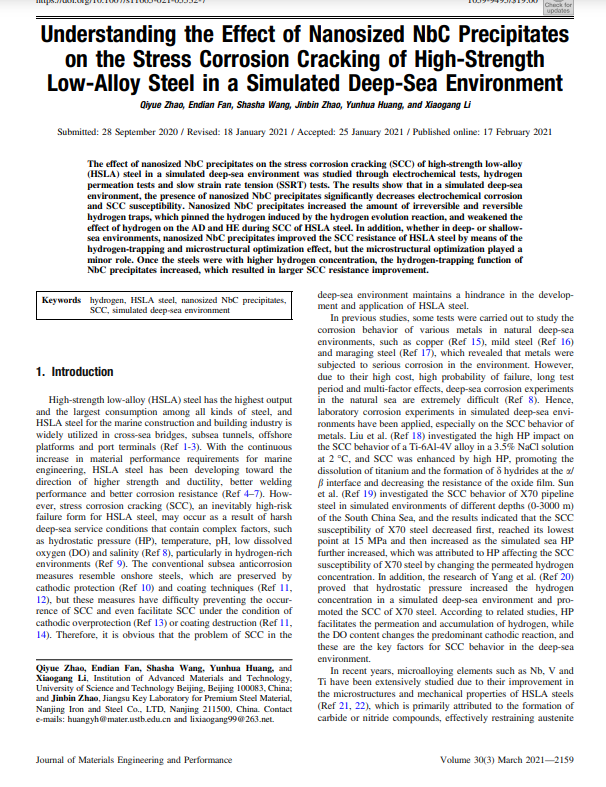The effect of nanosized NbC precipitates on the stress corrosion cracking (SCC) of high-strength low-alloy (HSLA) steel in a simulated deep-sea environment was studied through electrochemical tests, hydrogen permeation tests and slow strain rate tension (SSRT) tests. The results show that in a simulated deep-sea environment, the presence of nanosized NbC precipitates significantly decreases electrochemical corrosion and SCC susceptibility. Nanosized NbC precipitates increased the amount of irreversible and reversible hydrogen traps, which pinned the hydrogen induced by the hydrogen evolution reaction, and weakened the effect of hydrogen on the AD and HE during SCC of HSLA steel. In addition, whether in deep- or shallow-sea environments, nanosized NbC precipitates improved the SCC resistance of HSLA steel by means of the hydrogen-trapping and microstructural optimization effect, but the microstructural optimization played a minor role. Once the steels were with higher hydrogen concentration, the hydrogen-trapping function of NbC precipitates increased, which resulted in larger SCC resistance improvement.
